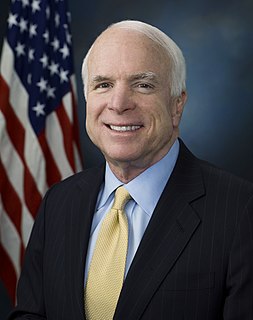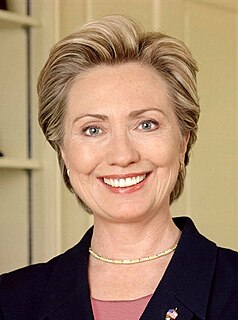
Ronald Ernest Paul is an American author, activist, physician, and retired politician who served as the U.S. representative for Texas's 22nd congressional district from 1976 to 1977 and again from 1979 to 1985, and then for Texas's 14th congressional district from 1997 to 2013. On three occasions, he sought the presidency of the United States: as the Libertarian Party nominee in 1988 and as a candidate for the Republican Party in 2008 and 2012. A self-described constitutionalist, Paul is a critic of the federal government's fiscal policies, especially the existence of the Federal Reserve and the tax policy, as well as the military–industrial complex, the war on drugs, and the war on terror. He has also been a vocal critic of mass surveillance policies such as the USA PATRIOT Act and the NSA surveillance programs. In 1976, Paul formed the Foundation for Rational Economics and Education (FREE), and in 1985 was named the first chairman of the conservative PAC Citizens for a Sound Economy, both free-market groups focused on limited government. He has been characterized as the "intellectual godfather" of the Tea Party movement, a fiscally conservative political movement started in 2009 that is largely against most matters of interventionism.

This article contains lists of official candidates associated with the 2008 Republican Party presidential primaries for the 2008 United States presidential election.

The 2008 Iowa Republican presidential caucuses took place on January 3, 2008. The Iowa Republican caucuses are an unofficial primary, with the delegates to the state convention selected proportionally via a straw poll. The Iowa caucuses mark the traditional formal start of the delegate selection process for the 2008 United States presidential election.

From January 3 to June 3, 2008, voters of the Republican Party chose their nominee for president in the 2008 United States presidential election. Senator John McCain of Arizona was selected as the nominee through a series of primary elections and caucuses culminating in the 2008 Republican National Convention held from Monday, September 1, through Thursday, September 4, 2008, in Saint Paul, Minnesota. President George W. Bush was ineligible to be elected to a third term due to the term limits established by the 22nd Amendment.

The political positions of Ron Paul (R-TX), United States presidential candidate in 1988, 2008, and 2012, are generally described as libertarian, but have also been labeled conservative. Paul's nickname "Dr. No" reflects both his medical degree and his assertion that he will "never vote for legislation unless the proposed measure is expressly authorized by the Constitution". This position has frequently resulted in Paul casting the sole "no" vote against proposed legislation. The central tenet of Paul's political philosophy is that "the proper role for government in America is to provide national defense, a court system for civil disputes, a criminal justice system for acts of force and fraud, and little else."

The 2008 presidential campaign of Ron Paul, Congressman of Texas, began in early 2007 when he announced his candidacy for the 2008 Republican nomination for President of the United States. Initial opinion polls during the first three quarters of 2007 showed Paul consistently receiving support from 3% or less of those polled. In 2008, Paul's support among Republican voters remained in the single digits, and well behind front-runner John McCain.
The 2008 presidential campaign of John Edwards, former United States Senator from North Carolina and Democratic nominee for Vice President in 2004 began on December 28, 2006 when he announced his entry into the 2008 presidential election in the city of New Orleans near sites devastated by Hurricane Katrina. On January 30, 2008, Edwards returned to New Orleans to announce that he was suspending his campaign for the Presidency. On May 14, 2008, he endorsed Barack Obama at a campaign event in Grand Rapids, Michigan.
In the 2008 United States presidential election, fundraising increased significantly compared to the levels achieved in previous presidential elections.
Moneybomb is a neologism coined in 2007 to describe a grassroots fundraising effort over a brief fixed time period, usually to support a candidate for election by dramatically increasing, concentrating, and publicizing fundraising activity during a specific hour or day. The term was coined by Trevor Lyman to describe a massive coordinated online donation drive on behalf of presidential candidate Ron Paul, in which context the San Jose Mercury News described a moneybomb as being "a one-day fundraising frenzy". The effort combines traditional and Internet-based fundraising appeals focusing especially on viral advertising through online vehicles such as YouTube, Twitter, and online forums. In the case of lesser-known candidates it is also intended to generate significant free mass media coverage the candidate would otherwise not receive. Moneybombs have been used for grassroots fundraising and viral activism over the Internet by several 2008 presidential candidates in the United States. It emerged as an important grassroots tool leading up to the 2010 midterm elections and 2012 presidential election in the United States.
Grassroots fundraising is a common fundraising method used by political candidates, which has grown in popularity with the emergence of the Internet and its use by US presidential candidates like Howard Dean, Barack Obama, Ron Paul, and most recently Bernie Sanders. Grassroots fundraising is a way of financing their campaigns for candidates who don't have significant media exposure of front runner status, or who are perhaps in opposition to the powerful lobby groups which influence the political party nominating process. It often involves mobilizing grassroots support to meet a specific fundraising goal or sets a specific day for grassroots supporters to donate to the campaign. Grassroots fundraising can also be a method for organizations to get as many people as possible to give and strategically get people involved. This method encompasses the efforts to reach out to the community being served and gaining connections and resources for one's campaign.

The 2008 United States presidential election in Iowa took place on November 4, 2008, as part of the 2008 United States presidential election. Voters chose seven representatives, or electors to the Electoral College, who voted for president and vice president.

The 2008 New Hampshire Republican presidential primary took place on January 8, 2008, with 12 national delegates being allocated proportionally to the popular vote. Arizona Senator John McCain won 7 of the delegates.

The 2008 New Hampshire Democratic presidential primary on January 8, 2008 was the first primary in the United States in 2008. Its purpose was to determine the number of delegates from New Hampshire that would represent a certain candidate at the National Convention. In a primary, members of a political party—in this case, the Democratic Party—will select the candidates to a subsequent election. Since 1920, New Hampshire has always hosted the first primaries in the entire nation. The Democratic Party's primary occurred on the same day as the Republican primary.

The 2008 Maine Republican presidential caucuses were held on February 1, February 2, and February 3 at various locations throughout the state of Maine. The results were used to apportion 21 delegates for the state. The Maine Republican caucuses were the first caucuses in the 2008 election season in which Rudy Giuliani was out of the race.
The 2000 presidential campaign of John McCain, the United States Senator from Arizona, began in September 1999. He announced his run for the Republican Party nomination for the presidency of the United States in the 2000 presidential election.

Paulville, Texas, was an American cooperative organization as well as the site and planned community under its development in the salt flats of north Hudspeth County, intended to consist exclusively of Ron Paul supporters. The Paulville community was named after the U.S. Congressman and established in January 2008 following the rise in popularity of his 2008 campaign. The cooperative was modeled on Paul's often libertarian ideas. The site was never developed, and the organization is now inactive.

The Draft Ron Paul movement refers to any of several grassroots efforts to convince United States Congressman Ron Paul of Texas to run for particular office, often president of the United States, as in the 2008 and 2012 elections.

The 2012 United States presidential election in Iowa took place on November 6, 2012, as part of the 2012 United States presidential election in which all 50 states plus the District of Columbia participated. Iowa voters chose six electors to represent them in the Electoral College via a popular vote pitting incumbent Democratic President Barack Obama and his running mate, Vice President Joe Biden, against Republican challenger and former Massachusetts Governor Mitt Romney and his running mate, Congressman Paul Ryan.

The 2012 Iowa Republican presidential caucuses took place on January 3, 2012.

The 2008 United States presidential election in New Hampshire took place on November 4, 2008, as part of the 2008 United States presidential election throughout all 50 states and D.C. Voters chose four representatives, or electors to the Electoral College, who voted for president and vice president.














